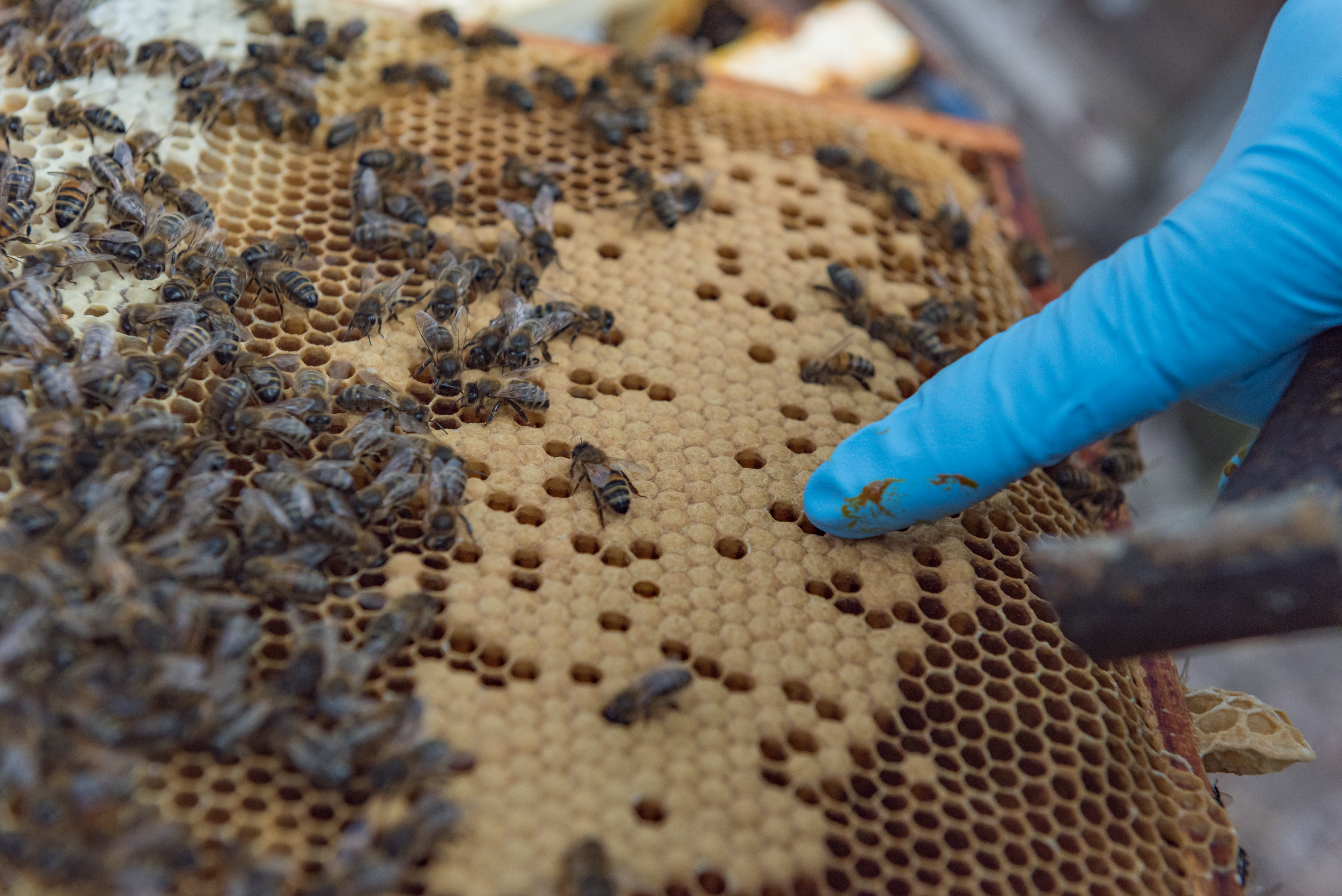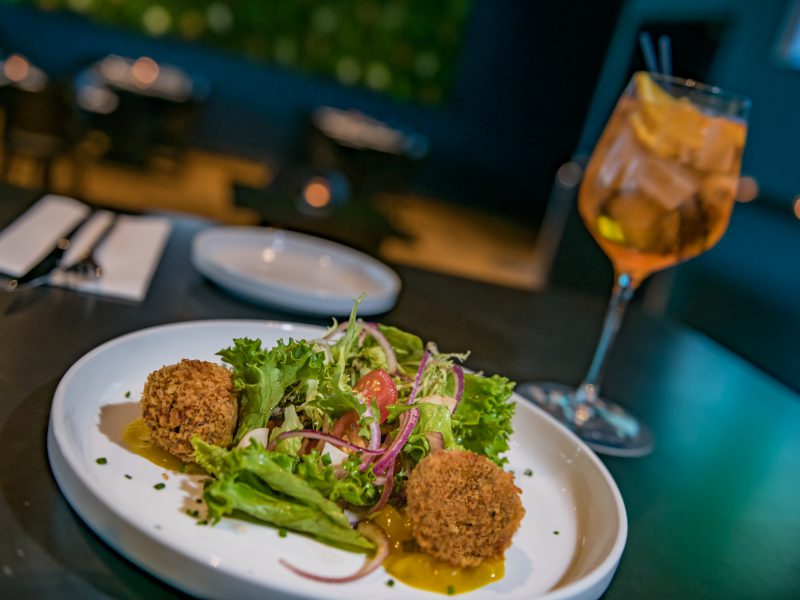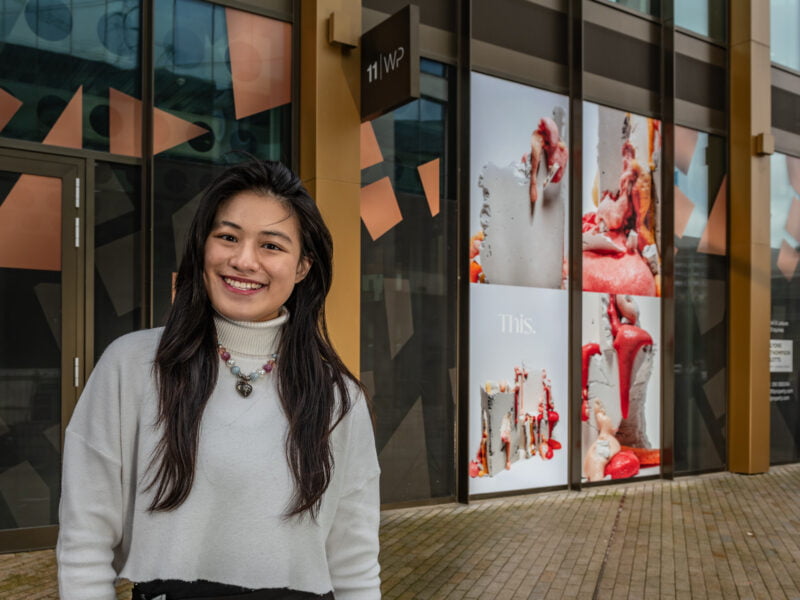At Wellington Place we are supporting the sustainability of honeybees in the city centre with our on-site beehive.
Since 2008 we have housed a large colony of bees on site and annually run beekeeping lessons for our customers, giving them the chance to get up close and personal with these fascinating insects.
We caught up with Bill Cadmore who maintains the colony at Wellington Place. Beekeeper Bill guides us through the importance of bees and how you can get started in beekeeping. We also have some suggestions on how you can make your garden or outdoor space bee-friendly.
Why Are Bees So Important?
In total there are 100 species of bees in the world, with only 9 species of honeybee. Sadly many of these species are at risk, largely due to global warming as most bees are not designed to maintain extreme temperature changes. The Wellington Place honeybees are Apis Mellifera bees which are the most common type of bee on the planet.
Protecting bees is extremely important because not only are they vital for our survival but also the dynamic ecosystem that they are part of. It’s important to think of bees as part of a complex system where all of the plants, animals, bacteria, fungi, protista and even viruses live in an integrated ecosystem if one part has an issue it can throw the whole system out of balance.
Increasing awareness around how important bees are to the ecosystem has contributed to a boost in the number of people taking up beekeeping, from urban beekeeping in city centres to larger residential hives.
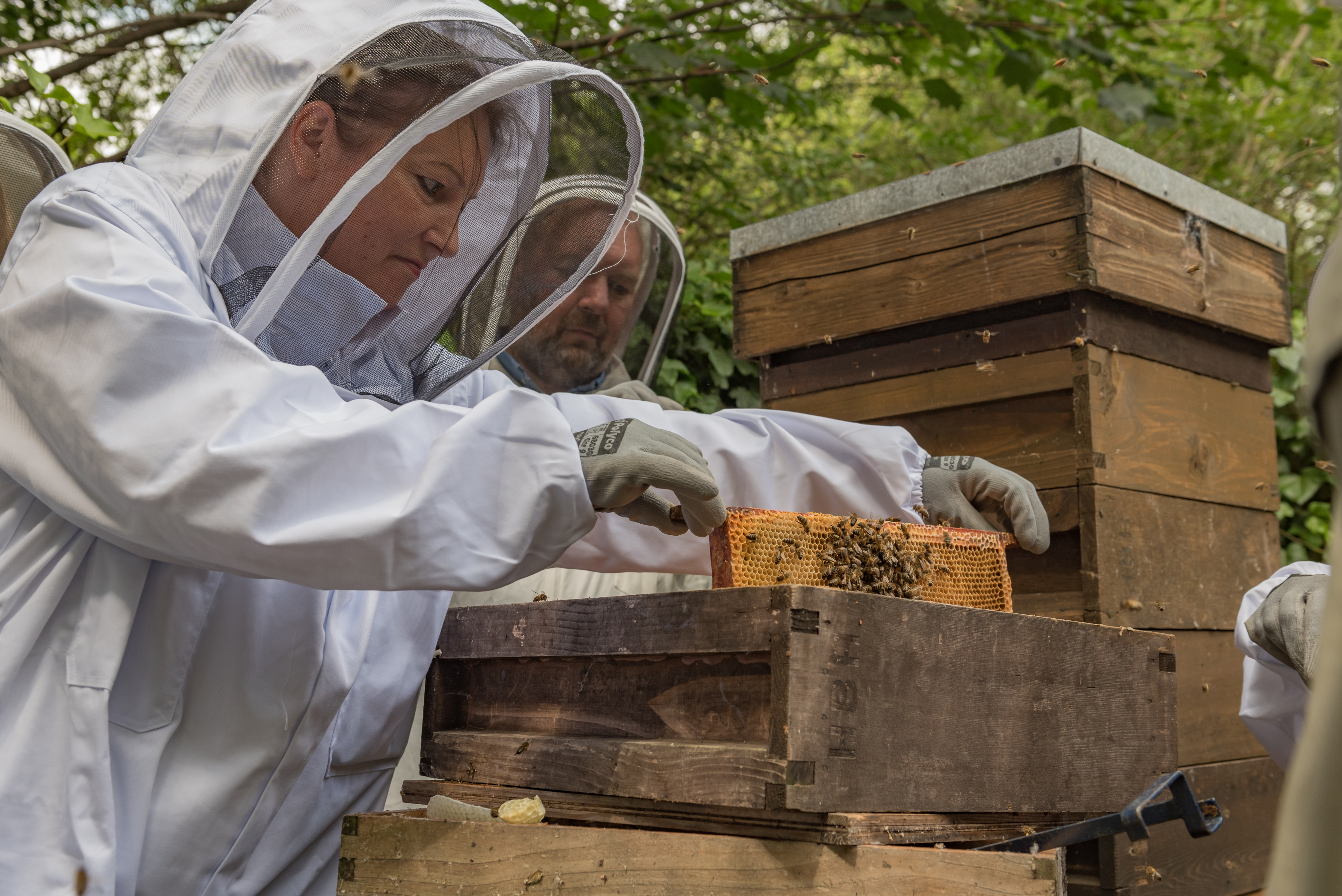
How to Get into Beekeeping
There are many beekeeping communities all around the world, but getting into beekeeping is not as simple as just getting a hive and some bees! Bill is an avid beekeeper and the Chairman of the Bradford Beekeepers Association. Here he passes on his suggestions for equipment you need if you are interested in getting into beekeeping.
Bees
To start with it’s good to know where you are getting your bees from. People just starting out usually buy a small colony called a nuc or nucleus that costs around £175 and can be purchased locally from the Leeds Beekeepers Association.
A Hive
You will also need somewhere to store the bees, and this means getting a hive. There are lots of different types of hives that can be used, but the most popular hives in the UK are National Hives which come to around £150.
A Beekeeping Suit
It’s also very important to make sure that you have the right protective clothing when handling bees. When bees get threatened, they will want to sting you, so when disrupting their hive they understandably tend to be fairly irritated. Making sure you have the right suit can prevent you from getting stung. Beekeeping suits can cost anywhere from £50 to £200.
A Smoker and Hive Tool
In order to keep the bees under control a smoker is essential, this calms the bees down and makes them a little drowsy so that they don’t try and sting you straight away. A hive tool is also important as it allows you to easily examine the hive.
Training
Beekeeper training ranges from basic to degree level but it’s important to have some basic training before you get started. If you want to try out beekeeping, joining a local taster session is a great place to start. Then find your local beekeeping association and sign up to a course with them.
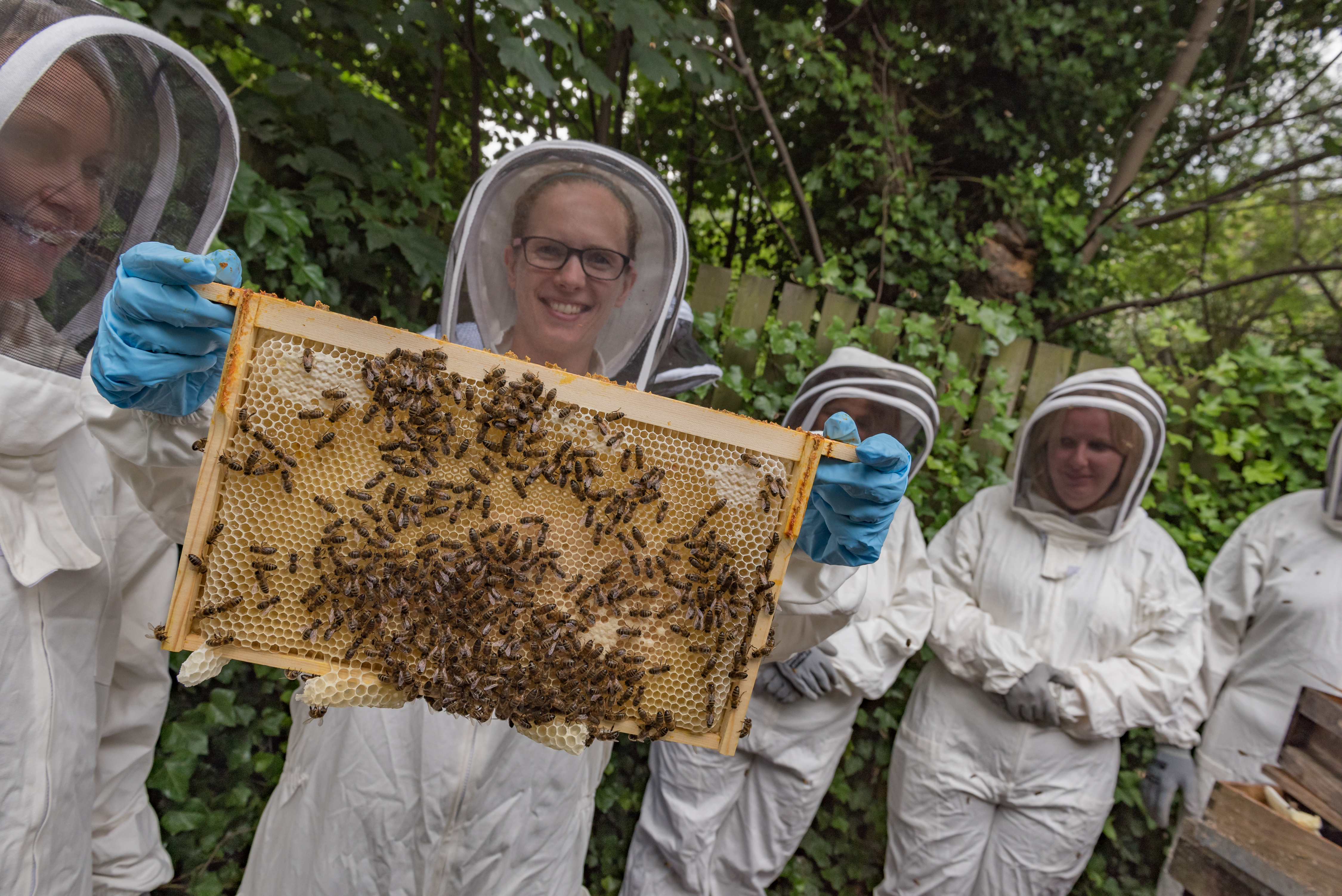
If you aren’t quite ready to start keeping bees just yet, here a are couple of tips on how you can encourage bees into your garden or outdoor space…
How to Make Your Garden or Outdoor Space Bee Friendly
If you want to do your bit by creating a bee-friendly environment outside your house there are a few things that you can do.
Creating Bee Hotels
Providing a bee hotel is a great way to boost bee diversity in your garden, by attracting solitary species. Solitary bees lay their eggs in the hollow cavities, leaving a small supply of food for the larvae to eat. The larvae then hatch, pupate and emerge from the stems. Always position bee hotels in full sun.
Grow Plants with Nectar and Pollen
Make sure to grow a range of plants that will flower continuously throughout the year, especially from March to September. You should also be sure to grow plenty of single flowers; adding wildflowers into your garden is also a great way to encourage bees.
If you are interested in learning more about beekeeping, watch our beekeeping lesson with Bill below.
Many thanks to Bill Cadmore for contributing to the blog.

